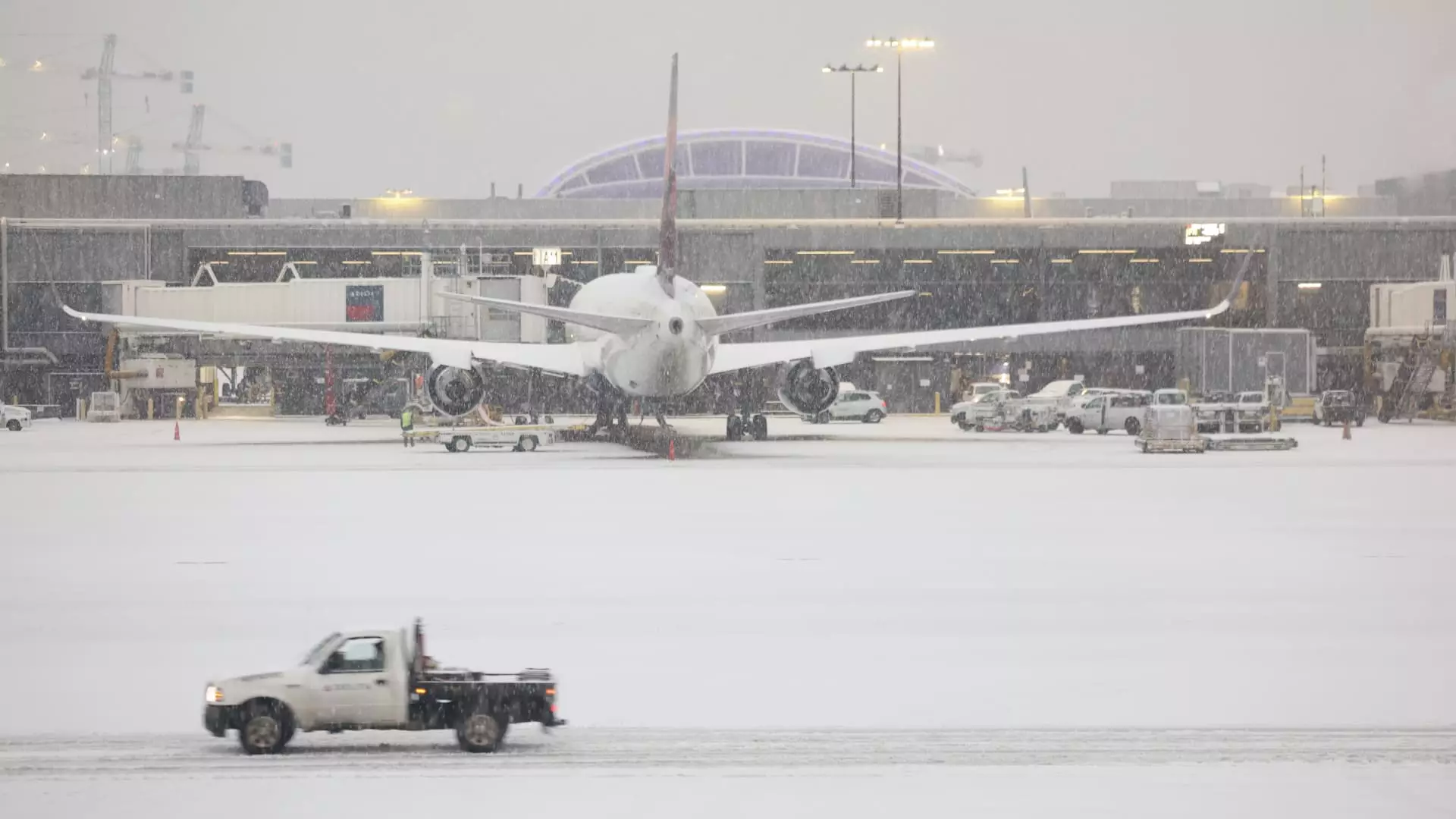Winter storms can wreak havoc on travel plans, and the recent weather system that swept across the Southern United States is a prime example of this phenomenon. Over 2,000 flights were canceled, and even more were delayed, leaving countless passengers stranded in airports or scrambling for alternate travel arrangements. The scale of the disruption was not only felt in the sky but also at major airline hubs such as Hartsfield-Jackson Atlanta International Airport, where operations were severely hampered.
Adding to the chaos was a significant incident involving a Delta Air Lines Boeing 757-300 during takeoff. The flight, destined for Minneapolis-St. Paul, had to be halted when the crew detected an engine issue just moments before departure. As a result, all 201 passengers and seven crew members were evacuated using emergency slides. Such emergencies are a stark reminder of the importance of safety protocols in aviation. Delta’s prompt response demonstrated their commitment to passenger safety, but the delay and added stress undoubtedly affected travelers already impacted by the storm.
The Broader Implications for Airlines
When major storms disrupt flight schedules, the ripple effects are extensive. Nearly 900 flights to and from Atlanta were canceled, accounting for approximately 40% of the day’s operations. The ground stop imposed on the airport illustrates how airports manage the flow of incoming and outgoing flights to prevent congestion. This tactical response is crucial for maintaining order during severe weather but cannot compensate for the inconvenience experienced by travelers.
American Airlines also faced substantial cancellations, with over 1,000 flights affected at its hubs in Dallas/Fort Worth and Charlotte. The snow and inclement weather that burdened those regions showcased how interconnected air travel is; delays in one area can lead to a cascading effect across the entire network. In response to the turmoil, airlines such as Delta, Southwest, and American opted to waive change fees, understanding that passengers lacked control over such extraordinary circumstances.
For passengers caught in this web of cancellations and delays, the travel experience can become increasingly frustrating and confusing. The emotional and logistical burden of rescheduling flights can take a toll, particularly for those traveling for important events or commitments. Airlines need to balance operational efficiency with the customer experience, ensuring that passengers not only receive appropriate support during weather disruptions but also clear communication about their options.
The recent winter storm serves as a reminder of the unpredictable nature of weather and its far-reaching consequences on air travel. With thousands of flights canceled and delayed, the aviation industry must continue to adapt its procedures to enhance passenger safety and overall experience. As travelers anticipate future journeys, understanding these potential disruptions can help them navigate the ever-evolving landscape of air travel more effectively.

